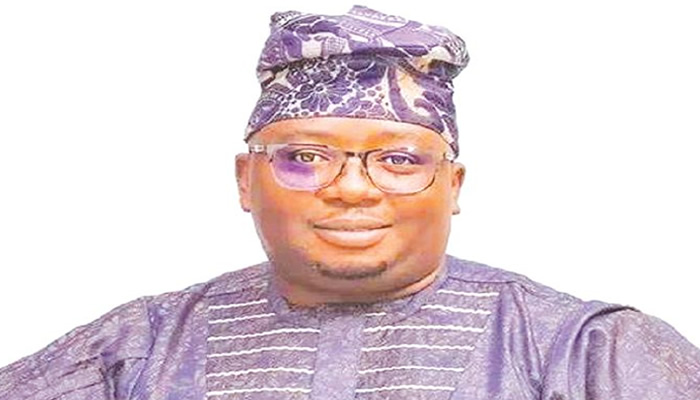Paragraph 1: Nigeria’s Power Paradox: Billions in Loans, Meager Megawatts
Nigeria’s electricity sector presents a perplexing paradox: despite securing over $3.23 billion in loans from international financial institutions like the World Bank, African Development Bank, and Japan International Cooperation Agency over the past four years, the nation’s power generation stubbornly stagnates around a meager average of 4,500 megawatts. This chronic power deficit plagues a population exceeding 200 million, leaving vast swathes of the country in darkness and hindering economic growth. While these substantial loans were earmarked for various projects aimed at bolstering electricity access and reliability, the persistent power shortage raises critical questions about the effectiveness of these investments and the underlying challenges impeding progress.
Paragraph 2: A Litany of Loans: Funding a Failing Sector?
The influx of financial aid to Nigeria’s power sector has taken various forms. The World Bank alone has approved a series of loans since 2020, targeting sustainable energy solutions, distribution system upgrades, and broader sector reforms. These include the $500 million Sustainable Power and Irrigation for Nigeria Project, the $750 million Nigeria Distributed Access through Renewable Energy Scale-up Project, and the $1.5 billion Power Sector Recovery Performance-Based Operation. Additionally, the $500 million Nigeria Distribution Sector Recovery Programme aimed to address the critical shortcomings of the electricity distribution companies. The African Development Bank also contributed with a $500 million loan in 2024 to support infrastructure transformation and cleaner energy access, while Japan International Cooperation Agency partnered with Nigeria on a $200 million transmission expansion program in Lagos and Ogun states.
Paragraph 3: Roadblocks to Progress: Delays, Disputes, and Deficiencies
Despite this substantial financial injection, the implementation of several projects has been fraught with challenges. The $500 million Nigeria Distribution Sector Recovery Programme, designed to revitalize the ailing distribution network, encountered significant delays due to legal disputes and slow approvals from the National Assembly. These setbacks highlight the bureaucratic and legal hurdles that often impede progress in Nigeria’s power sector. Moreover, the recurring issue of national grid collapses, with over 100 incidents in the past decade, further underscores the fragility of the existing infrastructure and the urgent need for robust and resilient systems.
Paragraph 4: A Sector Starved for Power: Consequences of Chronic Shortage
The consequences of Nigeria’s persistent power deficit are far-reaching. Small businesses and manufacturers struggle to operate efficiently, hampered by unreliable electricity supply. The frequent grid collapses disrupt economic activity and exacerbate the challenges faced by citizens who rely on electricity for their daily needs. The inadequacy of the current power supply, averaging around 4,500MW, falls drastically short of the estimated demand, leaving millions without access to reliable electricity. This persistent energy poverty undermines development efforts and perpetuates economic inequalities.
Paragraph 5: The Quest for Solutions: Government Initiatives and Expert Opinions
Recognizing the gravity of the situation, the Nigerian government has pledged to address the inefficiencies plaguing the power sector and ensure the effective utilization of the acquired loans. The Power Minister, Adelabu Adebayo, has estimated a requirement of $10 billion over the next decade to achieve a 24-hour power supply nationwide. The government has also emphasized plans to diversify the energy mix by harnessing renewable energy sources and aims to provide at least 20 hours of daily electricity by 2027. However, experts like Chinedu Amah question the logic of borrowing to invest in a supposedly privatized sector and stress the need for transparency and accountability in the management of these funds. They emphasize that the true measure of success lies not in the amount of money borrowed, but in the tangible improvements in electricity supply experienced by Nigerian citizens.
Paragraph 6: A Call for Accountability: Transparency, Efficiency, and Results
The ongoing challenges in Nigeria’s power sector underscore the need for a fundamental shift in approach. Beyond simply securing loans, the focus must be on ensuring their effective and transparent utilization. Accountability mechanisms must be strengthened to track the progress of projects and hold stakeholders responsible for delivering results. The government’s commitment to increasing power generation and diversifying the energy mix is commendable, but achieving these goals requires a concerted effort to address the underlying issues of aging infrastructure, inadequate maintenance, and insufficient investment. Furthermore, fostering partnerships with the private sector and promoting innovative financing models can play a crucial role in bridging the funding gap and accelerating the development of a reliable and sustainable power sector that can effectively serve the needs of Nigeria’s growing population. Ultimately, the success of these efforts will be measured not by the amount of money invested, but by the tangible improvements in the lives of ordinary Nigerians who desperately need access to reliable and affordable electricity.














